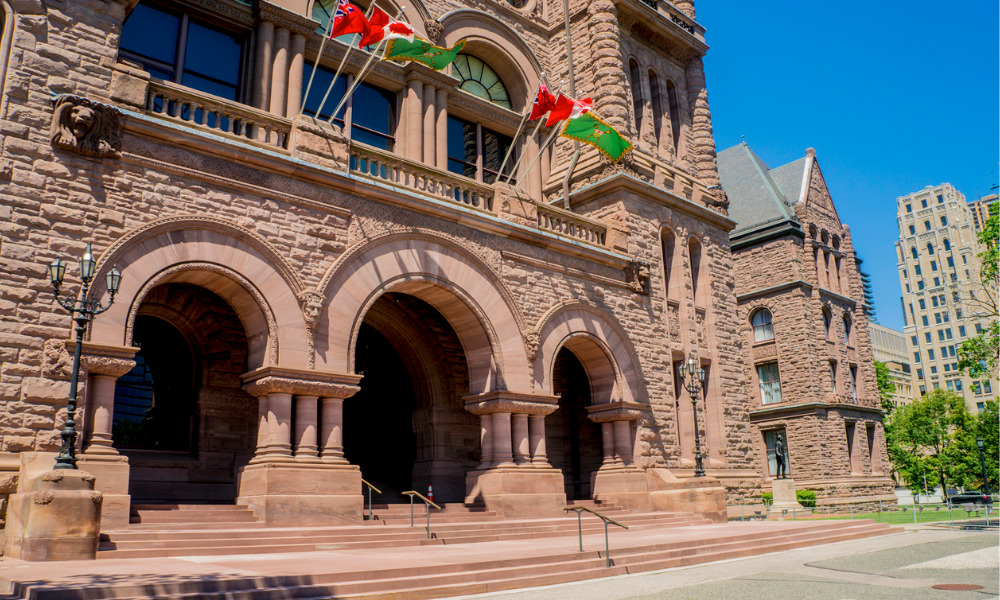
Bill includes consolidation of tribunals and access to French

Ontario has introduced the Accelerating Access to Justice Act, 2021, which the province said will build upon the modernization efforts adopted in response to the COVID-19 pandemic.
The proposed legislation seeks to eliminate barriers in Ontario’s courts and tribunals, as well as in the estates law, family law and child protection sectors, and to promote access to justice especially for rural, northern, Indigenous and Francophone communities. It also aims to improve the delivery of services through reducing delays and the time that litigants spend waiting for their day in court and through reducing costs.
“As we continue to work together to keep Ontarians safe and support our province’s recovery, we are committed to strengthening the capacity of the justice system to help communities overcome the challenges brought on by COVID-19,” said Doug Downey, Ontario’s attorney general, in the news release dated Feb. 16.
If the legislation is passed, the recent reforms on the qualifications for becoming a judge will be maintained to fill judicial vacancies faster, said the province. By moving the applications process online, the legislation seeks to encourage more lawyers to apply for judicial positions.
"We agree with the Minister that the list of judicial candidates he can consider for appointment should be expanded to a minimum of six,” said Allen Wynperle, immediate past president of the Ontario Trial Lawyers Association.
Another proposed change is to permanently permit the virtual witnessing of wills and powers of attorney so that individuals do not need to travel unnecessarily to access such services in person. Changes to the Succession Law Reform Act, the Substitute Decisions Act, 1992, the Family Law Act, and the Crown Administration of Estates Act seek to modernize estates law.
“The Society of Trust and Estate Practitioners looks forward to being part of the important work that will be done to educate lawyers and other professionals on the opportunities these proposed changes present along with the obligations that are inherent in them to ensure the protection of vulnerable individuals in circumstances where they cannot be met in person,” said Elaine Blades, chairperson of the Society of Trust and Estate Practitioners Toronto, and Paul Taylor, chairperson of STEP Ottawa.
The proposed legislation also aims to boost access to justice in French by allowing Francophones to submit without restrictions documents in French at all the province’s courthouses and for all legal matters, including family and civil. Another contemplated change is the establishment of the Ontario Land Tribunal, which will consolidate the Local Planning Appeal Tribunal, the Environmental Review Tribunal, the Board of Negotiation, the Conservation Review Board and the Mining and Lands Tribunal. This change seeks to improve efficiency in the land dispute resolution process and to address overlapping among cases.
The legislation, if passed, will also advance the interests of children by giving them a greater voice in the court process, by properly focusing the resources of the Office of the Children’s Lawyer and by reducing court costs for parents and guardians. The proposed legislation also introduces changes to the Public Accounting Act, 2004, the Chartered Professional Accountants of Ontario Act, 2017, the Public Service of Ontario Act, 2006 and the Barristers Act.